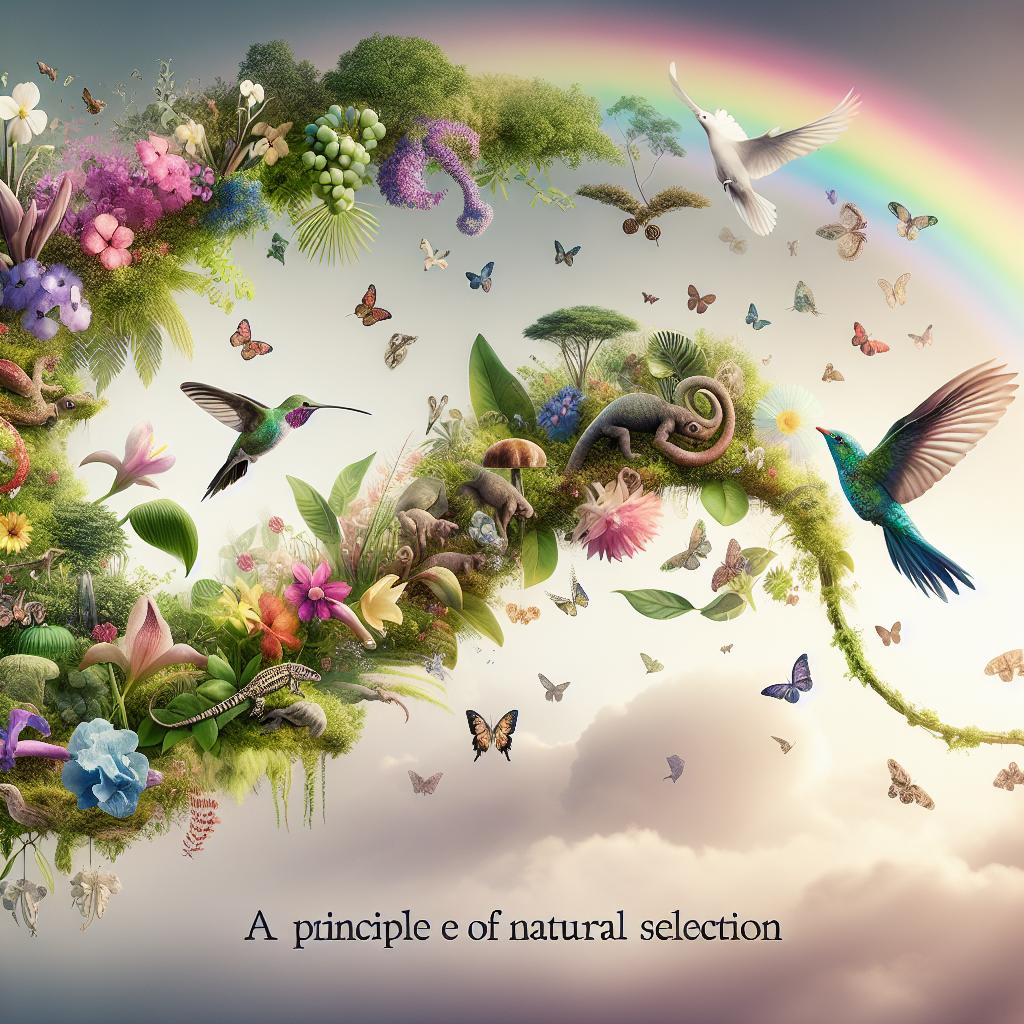
Unveiling the Truth: Natural Selection Facts vs. Christian Perspectives
Published: 19 August 2024
The Fact of Natural Selection
Key Point 1: Natural Selection and Creationism
Creation Ministries International (CMI) affirms natural selection as part of the biblical creationist model. While CMI acknowledges the marvelous ways in which God programmed organisms, they also recognize natural selection as a fact in the fallen creation. Natural selection, which was proposed by creationists before Darwin, is a culling force that removes unfit creatures. It is not a creative force and does not explain the arrival of the fittest.
Why This Matters: Understanding the role of natural selection in creation provides a counterargument to evolutionists who claim that natural selection proves Darwinian evolution. By embracing natural selection as part of the biblical creation model, creationists can reclaim this phenomenon from evolutionists and avoid conceding scientific territory.
Think About It: Does the term "natural selection" imply conscious choice on the part of nature? What do leading evolutionists say about this? Can scientists use figurative language without ascribing intelligence to nature?
Key Point 2: Misunderstandings about Natural Selection
Some critics argue that the term "natural selection" personifies nature and ascribes cognitive abilities to it. However, this claim stems from a hyperliteralistic misunderstanding of the phrase. The creators of the term, both creationists and Darwinists, did not intend to attribute cognitive abilities to nature. Leading evolutionists have explicitly disclaimed any anthropomorphic meanings associated with natural selection.
Why This Matters: Recognizing that natural selection does not personify nature allows for a more accurate understanding of the concept. It also highlights the importance of interpreting language within its intended usage.
Think About It: Can scientists use figurative language without implying conscious choice or cognitive abilities? How does language usage define meaning?
Key Point 3: Natural Selection as a Conservative Force
In a fallen world, natural selection acts as a conservative force that removes unfit organisms and hinders the effects of the curse. Natural selection is not a creative force that explains the arrival of the fittest. It is primarily the death of the unfittest rather than the survival of the fittest.
Why This Matters: Recognizing natural selection as a conservative force helps to reconcile the biblical creation model with observed realities in the world. It highlights the impact of the curse and the role of natural selection in maintaining order within a fallen creation.
Think About It: How does natural selection act as a conservative force? How does this align with the biblical understanding of a fallen world?
Creationists proposed natural selection before Darwin, challenging the claim that creationists have been playing Darwin's game. The pre-Darwinian creationists recognized natural selection as a conservative force, removing unfit organisms. Darwin's contribution was to transform it into a creative force for evolution.
Why This Matters: Understanding that creationists thought of natural selection before Darwin undermines the notion that creationists are playing Darwin's game. It demonstrates that natural selection is consistent with the biblical creation model and has been part of creationist discourse for centuries.
Think About It: Does natural selection being proposed by creationists before Darwin change your perspective on its significance? How does this challenge common assumptions about creationist beliefs?
Key Point 5: Epigenetics and Creationism
Epigenetics, which refers to heritable changes in an organism's phenotype, plays an important role in the growth and development of organisms. Creationists acknowledge the significance of epigenetics in understanding how genetic information is regulated and expressed.
Why This Matters: Recognizing epigenetics as part of the biblical creation model provides a more comprehensive understanding of how genetic information is controlled and modified. It highlights the intricate design and programming behind biological systems.
Think About It: How does epigenetics contribute to our understanding of genetic regulation and expression? How does it impact our understanding of genetic diversity and adaptation?
Key Point 6: The Fall and Natural Selection
The introduction of the curse through the Fall has had a significant impact on the natural world. Organisms are no longer able to choose their environment or adapt as easily. Extinctions and the inability to cope with environmental changes are evidence of the fallen state of creation.
Why This Matters: Recognizing the impact of the Fall on natural selection helps to explain the existence of suffering, death, and extinction in the world. It aligns with the biblical narrative and provides insights into the consequences of sin.
Think About It: How does the concept of natural selection align with the biblical understanding of the Fall? What implications does this have for our understanding of suffering and death?
Key Point 7: Vaccination and Natural Selection
Vaccination provides a practical example that refutes claims against natural selection. Vaccines work by training the immune system to recognize and destroy pathogens. If natural selection were not a valid concept, vaccines would not be effective in preventing disease.
Why This Matters: The success of vaccination demonstrates the real-world application and validity of natural selection. It highlights the importance of understanding natural selection in practical contexts.
Think About It: How does vaccination rely on natural selection? What does this say about the effectiveness of vaccines in preventing disease? Understanding natural selection within a biblical creation framework provides valuable insights into the complexity and order found in the natural world. By recognizing natural selection as a conservative force rather than a creative one, creationists can reclaim this phenomenon from evolutionists. Epigenetics further illuminates the intricacies of genetic regulation and adaptation. Exploring these concepts deepens our understanding of how God designed and sustains His creation while aligning with biblical perspectives on suffering, death, and redemption.
